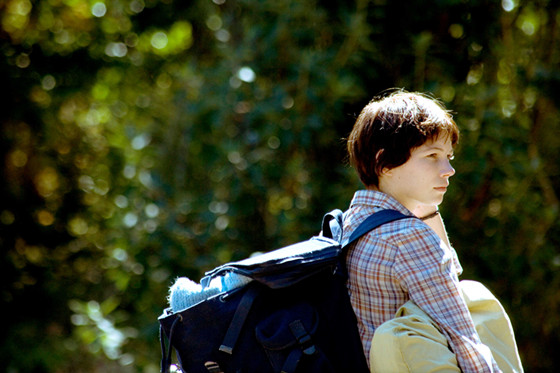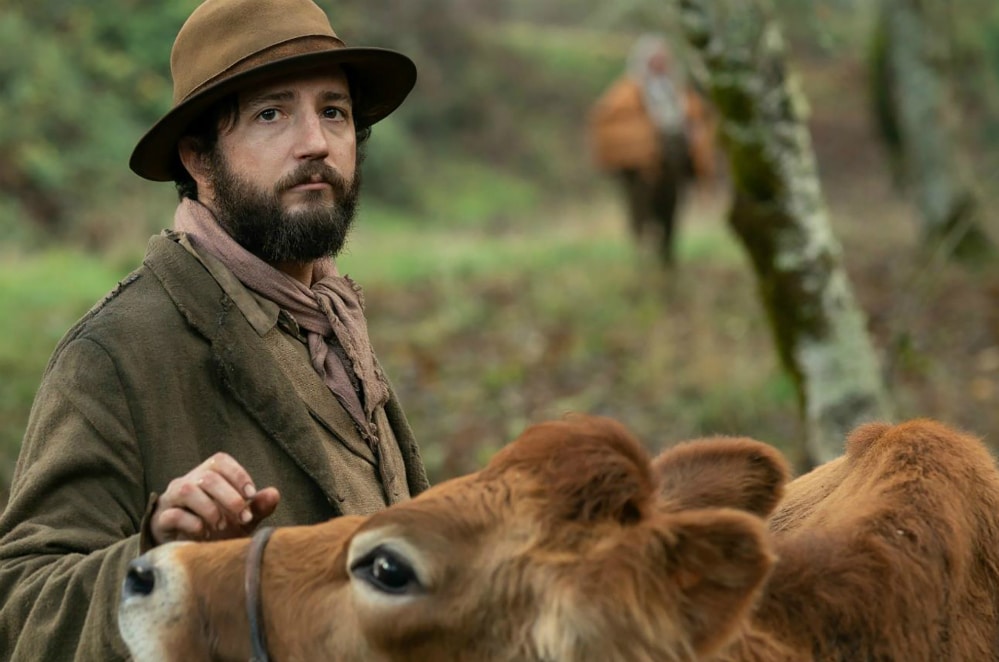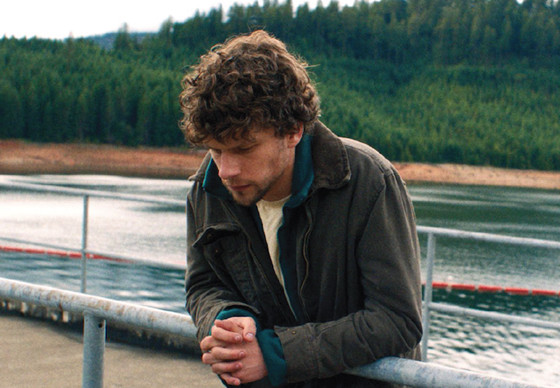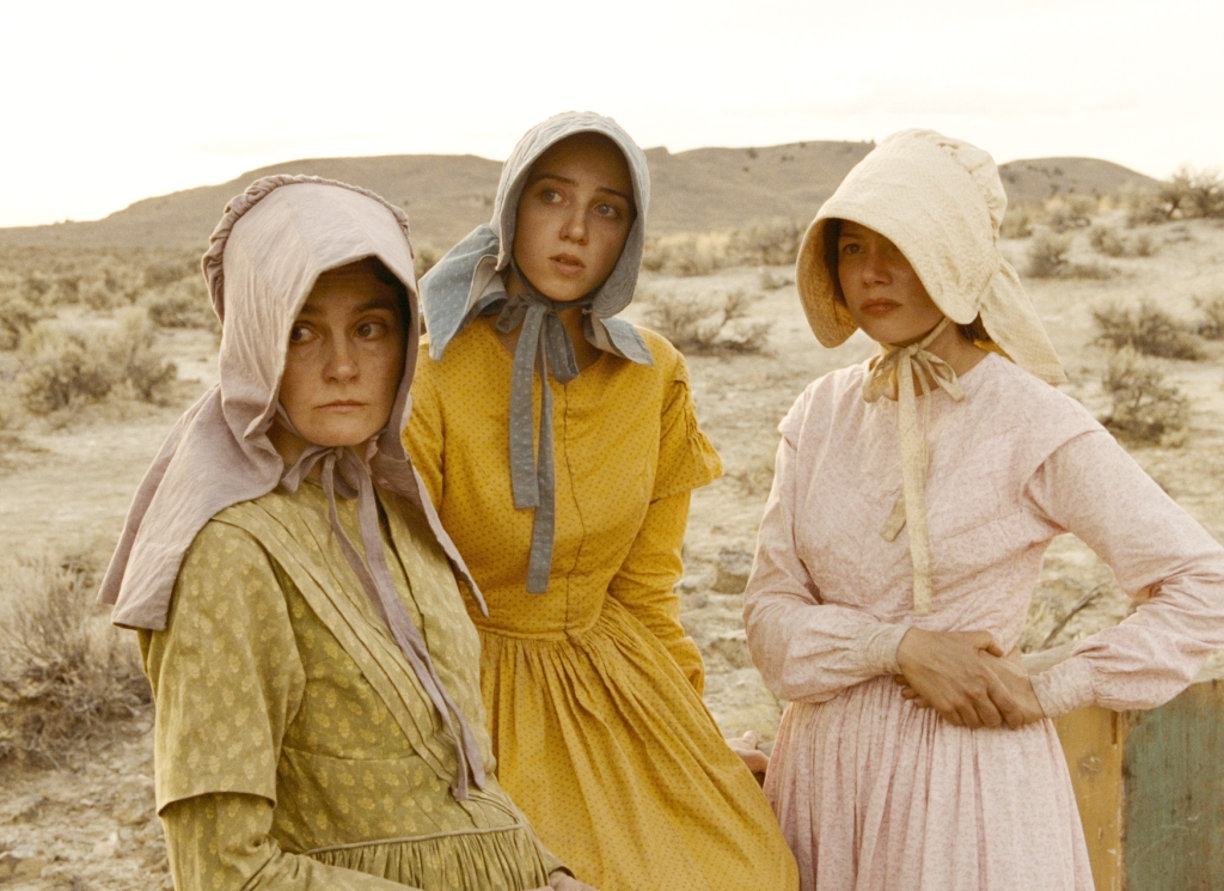4. Wendy and Lucy (2008)

Kelly Reichardt is one of the greatest political filmmakers in the United States, though she’s not necessarily often thought of in that way. But one of the throughlines in her movies is how the shape of the country affects the lives of common people; in other words, she utilizes her eminently human, small, and individualized approach to character as a means to explore the state of the nation.
There’s no better example of that than “Wendy and Lucy,” Reichardt’s heart-wrenching tale of a homeless woman and her dog, who go through increasingly dire financial troubles when travelling to another town. As with all of her films, this has a very specific sense of character and place; Wendy is far from being a broad, generic symbol (as so many hack “big message” directors have a tendency to create), she is, as played by the magnificent Michelle Williams, a real person with palpable concerns and fears.
But part of Reichardt’s mastery here is her ability to imbue this tiny story with the pathos of an entire country; Wendy’s tragic trajectory mirrors the economic downfall many Americans faced in the wake of the crisis of the Bush years (this movie was made specifically in reference to the Iraq War spending but before the crash of 2008, a testament to Reichardt’s prescience).
3. First Cow (2019)

If “Wendy and Lucy” is Reichardt’s most direct and furious condemnation of the maladies caused by capitalism, then “First Cow” is her gentlest, warmest companion piece to that theme. It has both a pointed, structural, and intelligent critique of how the necessity for money poisons even other aspects of life, but it also functions as a delightful buddy movie.
Friendship, of course, is one of Reichardt’s main themes, a recurring motif in most of her films, whether it be the melancholic love shared by two estranged friends on a road trip or in the bond between a woman and her dog. “First Cow,” in that sense, feels like the culmination of that theme, the most comprehensive conclusion of her artistic statement that human connection and a return to nature are the best counter-measures to endure the discontentment of living in a material world.
“First Cow” is also another step forward in the director’s increasing formalism: the use of the 4:3 aspect ratio is masterful, contributing a sense of old-school austerity to her exquisitely crafted images. In fact, Reichardt’s sense of composition is now so sophisticated that it’s almost difficult to believe that the person responsible for the strikingly dreamy imagery of this film is the same one behind her naturalistic first efforts. There are very, very few other directors of her generation who evolved formally as much as Reichardt, just one of many reasons why she continues to be an essential filmmaker.
2. Night Moves (2013)

“A Kelly Reichardt thriller” seems like a most incongruous group of words, but they are exactly right to describe the incredible “Night Moves”: a tense, suspenseful, and depressingly bleak look into the inner workings of the world of eco-terrorism.
Much of the brilliance of “Night Moves” derives precisely from the tension between those two descriptors; it is, first and foremost, a Kelly Reichardt movie, with all of the characteristics one expects from such a thing (character-driven narrative; lived-in performances), but it’s also a legitimate thriller, featuring twists, turns, and the inevitable turn toward violence. The merging of these two wildly different cinematic flavours makes for a fascinating combination: “Night Moves” is not exactly thrilling, being far too somber for that, but it’s nevertheless edge-of-your-seat filmmaking, squirmish unsparing.
It’s a fitting tone for the subject matter, which Reichardt’s approaches with a refreshing lack of answers or easy solutions; as always, she is a master at examining the nuances of a social issue (in this case, the righteous rage of environmentalists and their desire to do something to shake the status quo), but in “Night Moves” we are left with a sense of dread that comes from uncertainty, of where to go next or how to fix the problem. It’s a deliberately feel-bad movie, but so rewarding for those in Reichardt’s wavelength.
1. Meek’s Cutoff (2010)

Every major director has one movie that embodies all their best traits as artists, the one picture that perfectly encompasses their aesthetic and their worldview, and which can therefore be classified as a signature work. In the case of Kelly Reichardt, that work is “Meek’s Cutoff.”
It can be a contentious choice, considering the scarcity of her output, that makes every single one of her films special and noteworthy – doubtlessly there are arguments to be made for any other of the pictures listed here to be at the number one spot. But even in a career filled with nothing but jewels, it’s undeniable that “Meek’s Cutoff” is an astonishing achievement; everything said so far to exalt her other movies can be applied to this one as well, to an even greater extent. The rich cast of complex characters; the resignification of classic American iconography and genre; the thoughtful historical unravelling of the foundations of a country – there’s so many rich thematic elements to this film.
But what makes “Meek’s Cutoff” Reichardt’s best movie is that it’s the most rigorous formalist movie of her career: not only does the movie feature the best, most deliberate use of the Academy ratio in all of modern cinema (which the filmmaker uses to create some of the absolutely indelible imagery of the decade, with one striking shot after the other), but it has a clockwork precise sense of pacing. The much derided slowness of it is an essential aspect of those characters’ experiences and therefore, of the story itself, something Reichardt masterfully imbues into the very form of the film (she’s responsible for the editing too, it must be mentioned).
It’s a mesmerizing craft, and one of the very best movies of the 2010s.